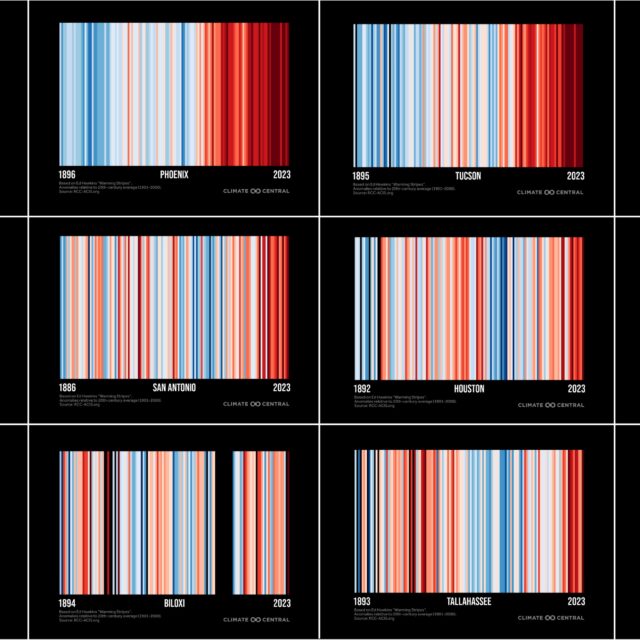Author: Wellington “Duke” Reiter, Executive Director, Ten Across
For the past month, I have witnessed writers, journalists, and other commentators acknowledging the unstable global situation before proceeding to discuss their usual subject matter. This is understandable, as our daily routines seem an undeserved luxury when contrasted with the completely irrational suffering in Ukraine. The context for just about everything is altered and the future we are working to secure seems considerably more fragile than it did just a month ago. We find ourselves pondering the changing prospects for children and grandchildren in the decades to come. And we sense the quiet loss of time and attention needed to address the previously dominant macro challenge: climate change.
Time Management
Climate change has been the underlying driver of activity in the Ten Across office. We observe its measurable effects within our selected geography and the impact on the people who live there. While we purposely focus the scale and scope of our research, the latest report by the Intergovernmental Panel on Climate Change confirms the need for action in this planet-wide phenomenon. The accompanying pleas of UN Secretary-General António Gutteres could not be more urgent:
“Many ecosystems are at the point of no return—now. Unchecked carbon pollution is forcing the world’s most vulnerable on a frog march to destruction—now.”*
“Destruction” is a powerful word, intentionally arresting. But the slow-rolling disaster that is global warming can seem abstract and remote, and the global response has been correspondingly lackluster. Multi-year timetables to achieve this or that urgent objective are negotiated, agreed upon, and applauded—but quickly exceed our collective attention span.**
Then there is the news from Ukraine. This is destruction, smoldering cities and millions of displaced people. Such utter disregard for fellow humans, civilization, and the environment is shocking and disorienting. As our attention is rightly drawn to the immediate cessation of this dark spectacle, our sense of the very real challenges of climate change—and the refugees it too will produce—fades.
Setting the Clock Back
Within the U.S., the Ten Across geography is on the leading edge of demographic, economic, and climate change. Important trendlines are readily observable in this study area, especially around critical, and sometimes existential, issues such as access to water. Who can ignore, for instance, the rapidly declining reservoirs in the Southwest, or the rising seas and historically destructive hurricanes in the Southeast?
Energy is another significant case in point. Our 2,400-mile transect is overlaid by a vast, man-made ecosystem of petrochemical production facilities, pipelines, and related infrastructure. It can—and must—become the proving grounds for the necessary transition to renewable sources, which are also abundant in this geography. As a recent article pointed out, Texas has enough wind and solar power to phase out coal entirely. ** The transition, while doable, would be challenging under the best of conditions—let alone today’s turbulent circumstances.
Balancing the risks of immediate and future disasters may necessitate a provisional reprieve for an energy industry that has contributed so heavily to the concerns outlined in the IPCC report. Context is everything, and it has dramatically changed. Fracking in the Permian Basin, LNG terminals off the Louisiana coast, pump jacks in urban Los Angeles—all features of the Ten Across landscape—have been abruptly moved to the center of the international stage as we seek to cut off an economic lifeline to an increasingly irrational and threatening regime.
The implications of this course correction require setting aside the heartfelt comments of the Secretary-General and the recalibration of our environmental aspirations. The friction generated between short- and long-term priorities is overheating our systems and blurring our thought processes. It requires the compartmentalization of our work so as to remain productive in the face of what we hope are very temporary measures. There is no doubt, however, that we are moving further away from our goals, and it will be hard to regain lost ground. Meanwhile, climate change persists, attention is diluted, and time is squandered.
Time Bombs
For the first time in recent memory, the unspeakable has re-entered our consciousness. Matter-of-fact comments about nuclear weapons are now frequent, jarring, and seem out-of-sync with everything we thought we knew. They are a reminder of the invisible structures undergirding the global order which can confound rational diplomacy and action.
In his book Dangerous Years, David Orr captures our present situation well:
“Nuclear Armageddon and ecological ruin work at different rates, but either could destroy civilization. They are also inseparable. Nuclear war becomes more likely with climate changes that lead to a hungrier, thirstier, poorer, and more desperate world. And a rapid climatic change is more likely in a world of competing, short-sighted nation-states inept in the arts of compromise and foresight.”****
Seems about right, given what we are witnessing now.
The Ten Across initiative is informed by observations of human nature and the lessons learned here from previous encounters with disaster. We did not factor in the grievances of despots armed to the teeth—but we will not be completely thrown off course by one, either.
The work we do together is more important than ever—and there really is no other option.
* https://news.un.org/en/story/2022/02/1112852
** https://nymag.com/intelligencer/2022/03/un-climate-report.html
*** https://fortune.com/2022/03/22/texas-wind-solar-coal-troubled-electrical-grid/
**** Dangerous Years, David W. Orr https://yalebooks.yale.edu/book/9780300222814/dangerous-years




